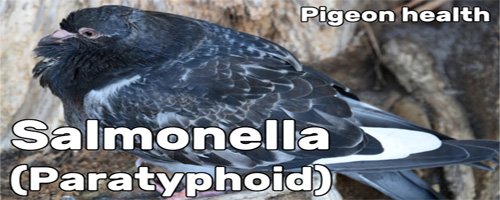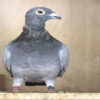
Protect Your Pigeons from Salmonella Paratyphoid with SALGEN Vaccine
If you’re serious about keeping your pigeons healthy, Salmonella Paratyphoid is one disease you don’t want to ignore. Often referred to as Enemy Number 1 in the pigeon racing and breeding world, this highly contagious bacterial infection can spread like wildfire through lofts, causing devastating health issues and even fatalities.
The good news? Vaccination is the most effective way to protect your flock, and the SALGEN Salmonella Vaccine has proven to be a game-changer since its introduction in 2016.
Why Is Salmonella Paratyphoid So Dangerous?
Salmonella isn’t just another minor infection—it’s a serious threat. This disease can infect pigeons of all ages, leading to a range of symptoms such as:
- Weight loss and poor condition
- Green, slimy droppings
- Swollen joints, limping, or difficulty flying
- Twisted necks and blindness in extreme cases
- Infertility and increased chick mortality
Salmonella in racing pigeons is primarily classified into two different serogroups:
Group B and Group D, both of which can cause severe illness, but they differ in their characteristics and impact on pigeons.
Group B Salmonella (Salmonella Typhimurium var. Copenhagen)
- Most Common in Pigeons: This strain is the primary cause of Paratyphoid in racing pigeons.
- Highly Contagious: It spreads rapidly through contaminated food, water, droppings, or direct contact.
- Affects Multiple Systems:
- Digestive Tract: Causes diarrhea, weight loss, and general weakness.
- Joints & Bones: Leads to swollen joints, lameness, or wing problems.
- Reproductive System: Causes infertility and increases the risk of dead-in-shell embryos.
- Neurological Issues: In rare cases, it can cause twisted necks and coordination problems.
Group D Salmonella (Salmonella Enteritidis)
- Less Common but More Severe: While not as frequent as Group B, infections can be more severe in some cases.
- Zoonotic Potential: This strain is more commonly associated with foodborne illness in humans, meaning it can pose a risk to pigeon handlers.
- Severe Organ Damage: It primarily affects the liver, spleen, and intestines, leading to high mortality in young pigeons.
- Fast-Spreading: Like Group B, it spreads through contaminated feed, water, and contact with infected birds.
Prevention & Control
- Vaccination: SALGEN and other vaccines provide protection, particularly against Group B (Paratyphoid).
- Loft Hygiene: Regular cleaning and disinfection minimize infection risks.
- Rodent Control: Mice and rats can carry and spread both types of Salmonella.
- Quarantine & Testing: New pigeons should be tested and observed before introduction to the loft.
Both Group B and Group D Salmonella pose a serious threat to racing pigeons, but with proper vaccination, hygiene, and management practices, outbreaks can be controlled effectively.
The most frustrating part? Even birds that seem healthy can be carriers, spreading the bacteria to others in the loft. That’s why prevention is key.
How Does SALGEN Keep Your Birds Safe?
SALGEN Salmonella Vaccine is designed to build strong immunity against Salmonella Paratyphoid, ensuring your pigeons stay healthy and competitive. It works by stimulating the bird’s immune system to recognize and fight off the bacteria before it can cause serious illness.
Key Benefits of the SALGEN Vaccine:
✔ Proven Effectiveness – Over 80% of test results show excellent antibody levels, providing robust protection.
✔ Long-Lasting Immunity – Protection kicks in within 10-14 days after the first dose and lasts up to a full year with a booster.
✔ Safe and Easy to Administer – Given orally using a syringe or dropper—no injections required!
✔ No Withdrawal Period – Safe for racing and breeding birds, with no restrictions.
✔ Prevents Disease Spread – Reduces the risk of infected birds passing Salmonella to others.
How to Use SALGEN for Maximum Protection
For the best results, follow the recommended dosage and schedule based on your pigeons’ age and lifestyle:
Dosage Guidelines:
- Chicks (5-10 days old): 0.2 ml per bird orally. A booster after 3-4 weeks is highly recommended for a strong immune foundation.
- Young birds (recently weaned): Booster dose no later than one week after weaning.
- Adult pigeons: 0.3 ml per bird orally, ideally 14 days before racing, breeding, or exhibition season.
- Breeding pigeons in high-risk areas: Vaccinate twice a year for extra protection.
How to Prepare the Vaccine:
- Reconstitute the lyophilisate by mixing the contents of a 20 ml bottle with 20 ml of fresh drinking water.
- Shake well to ensure proper distribution.
- Use a graduated syringe or dropper to administer the correct dose directly into the bird’s mouth.
- Store any unused vaccine properly (between 35°F – 46°F (2°C – 8°C)), away from frost and direct sunlight.
Why Annual Boosters Matter
While a single dose offers strong protection, Salmonella bacteria are persistent, and pigeons are constantly exposed to new risks, especially in racing and breeding environments. By boosting immunity annually, you ensure your flock stays resistant year-round.
Additional Prevention Tips
Vaccination is crucial, but it works best when combined with good loft management: ✅ Maintain a Clean Loft – Regularly disinfect perches, feeders, and drinkers. Rodents and wild birds can introduce Salmonella, so keep them out! ✅ Quarantine New Birds – Any newly acquired pigeons should be isolated for at least 5 days before introducing them to the main loft. ✅ Provide Proper Nutrition – A well-balanced diet with essential vitamins and minerals supports a strong immune system. ✅ Monitor for Symptoms – Even vaccinated birds should be checked regularly for signs of illness. Early intervention can save lives!
Secure Your Pigeons’ Health with SALGEN!
Investing in SALGEN Salmonella Vaccine is one of the best decisions you can make for your pigeons’ health and performance. With its proven effectiveness, easy administration, and long-lasting protection, it’s the ultimate safeguard against Salmonella Paratyphoid.
Don’t wait until it’s too late! Order SALGEN Salmonella Vaccine today and ensure your pigeons stay healthy, race-ready, and protected all year long.
“Until Next tine Keep Them Healthy And Flying”


